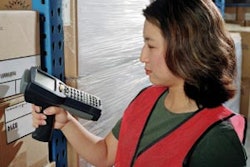Bicycle manufacturer goes beyond Wal-Mart mandate, forges adaptive business network with RFID
Madison, WI — May 17, 2005 — Pacific Cycle, a division of Dorel Industries, said this week that it has successfully implemented SAP's radio frequency identification (RFID) capabilities within its SAP NetWeaver platform.
With its go-live on March 31, 2005, the Madison, Wisc.-based manufacturer of such name brand bicycles as Schwinn, GT, Roadmaster and Mongoose is now surpassing the "Wal-Mart mandate," which requires the retailer's top 100 suppliers to tag pallets and cases shipping to select Wal-Mart distribution centers.
Pacific Cycle said it is using the SAP technology to make its business network more adaptive, such as automating warehouse activities, creating newfound data transparency across the supply chain and helping ensure the right shipment gets to the right place at the right time.
Pacific Cycle chose the SAP solution with the aim of reducing total cost of ownership (TCO) by scaling its RFID pilot project, targeting benefits through supply chain automation and using its existing SAP software investment for further gains across its global operations.
The RFID capabilities of SAP NetWeaver contain several preconfigured components that are designed to reduce implementation time, including SAP Auto-ID Infrastructure, which controls the RFID process while converting raw RFID data into information the company can use. It also offers embedded and preconfigured data warehousing to report read rates and inventory movement metrics both internally and externally across the supply chain, a data exchange infrastructure to translate and route information into back-end systems, and event management capabilities to record and track events and identify exceptions.
"Pacific Cycle realized early on the tremendous value that RFID could deliver in helping us streamline our manufacturing and distribution process," said Ed Matthews, director of information systems, Pacific Cycle. "By implementing SAP RFID technology, we consciously went beyond the Wal-Mart mandate. We integrated RFID into our existing mySAP [enterprise resource planning (ERP)] landscape and were able to eliminate several manual steps on our outbound delivery process. At the same time, we have been able to use our existing infrastructure to have more visibility of tagged RFID inventory in our retailer's supply chain. This transparent, real-time data helps us create a more efficient and transparent supply chain while reducing inventory levels as well as charge-backs."
According to Dennis Gaughan, research director, AMR Research ("Making RFID Middleware Decisions in a Changing Marketplace," April 2005), "RFID middleware is a critical component to a company's overall RFID strategy, as it's the glue that connects the physical world of tags and readers to enterprise applications that will leverage the information that the tags contain. Early RFID adopters are struggling to find the balance between low-cost deployment and long-term investment protection. Selecting the right partner for RFID middleware depends on a number of familiar factors, including product functionality, domain expertise and company viability."
Currently, some 200 Pacific Cycle employees are using the SAP solution. In the near future, Pacific Cycle plans to extend the RFID label application to its manufacturing plant in China in order to gain additional value through more accurate and timely information and a reduction of handling costs.
















